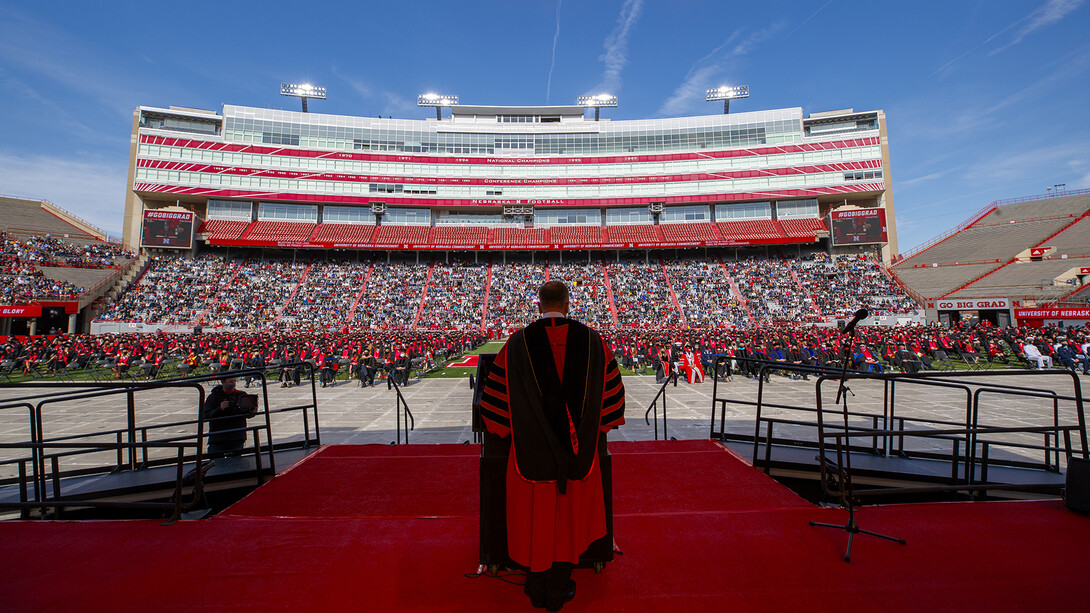
In a lot of ways, 2021 was much like 2020 — difficult and anxiety-inducing.
But it also showed the strength of Huskers, as each forged ahead on teaching, learning, research, outreach and serving the greater good against a backdrop of a pandemic and political turmoil.
The year ushered in the 150th anniversary of the founding of the University of Nebraska State Museum; the start of the Grand Challenges Initiative, which will establish new research and projects to help address many of the world’s most pressing concerns; and a new roadmap for making the university a more equitable and accessible place for all.
Here, Nebraska Today looks back on the many ways that Huskers rolled up their sleeves and proved there is no place like Nebraska.
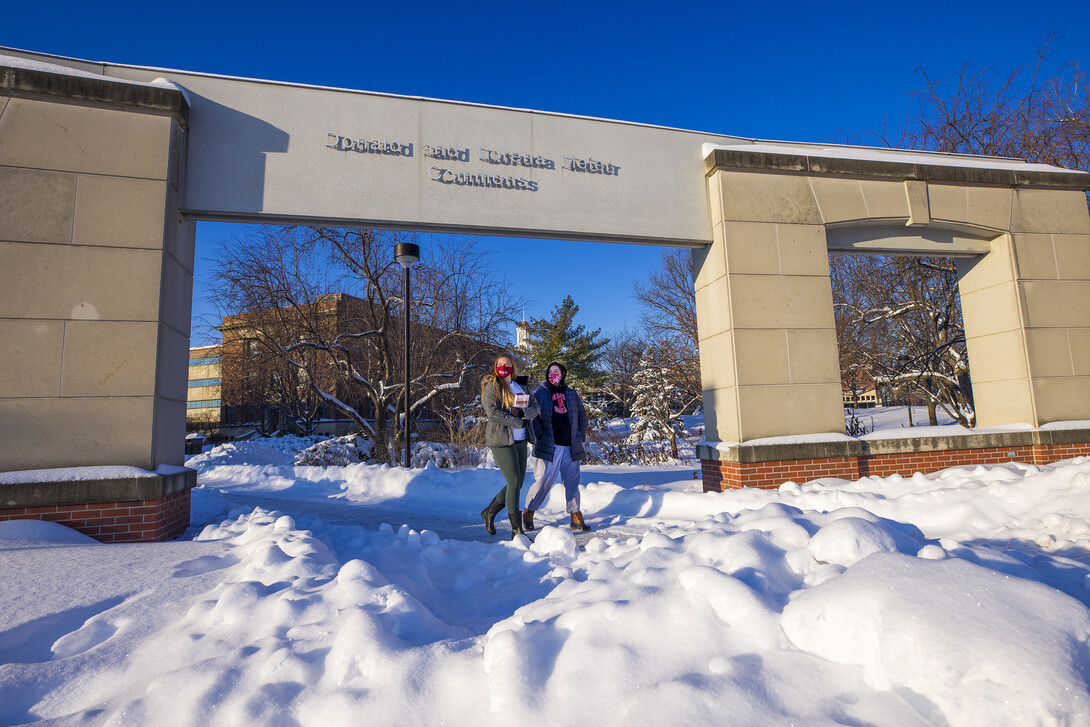
Wayward weather
The year began with a delay. Spring semester classes were to resume Jan. 25, but Mother Nature had other plans. A record-setting 14.5 inches of snow fell on Lincoln, the most snow the city had seen in one day since 1965.
Back-to-back snow day closures (Jan. 25-26) gave campus crews time to clear sidewalks and throughways, and students made the most of the time, catching one more breath before the busy spring semester went full tilt.
A two-day weather closure was repeated from Feb. 15-16 due to record-breaking cold weather. The lowest temperature recorded in Lincoln was minus 31 degrees on Feb. 16. That extreme weather put stress on power grids throughout the United States, leading to rolling blackouts in Lincoln. To be good stewards of community resources, campus crews worked to reduce energy usage and relied on diesel-powered generators, freeing up capacity on local grids.
A changing pandemic
After a historic and scary 2020, 2021 began with some hope — COVID-19 vaccines were beginning to roll out — but the pandemic continued to cast a long shadow, and the ever-changing landscape kept students, faculty and staff on their toes.
The evolving viral threat led to many policy changes: mandatory saliva testing for surveillance, the introduction of the Safer Community app for entrance into campus buildings, and changes to masking and social distancing throughout the year. An in-house contact tracing team was expanded.
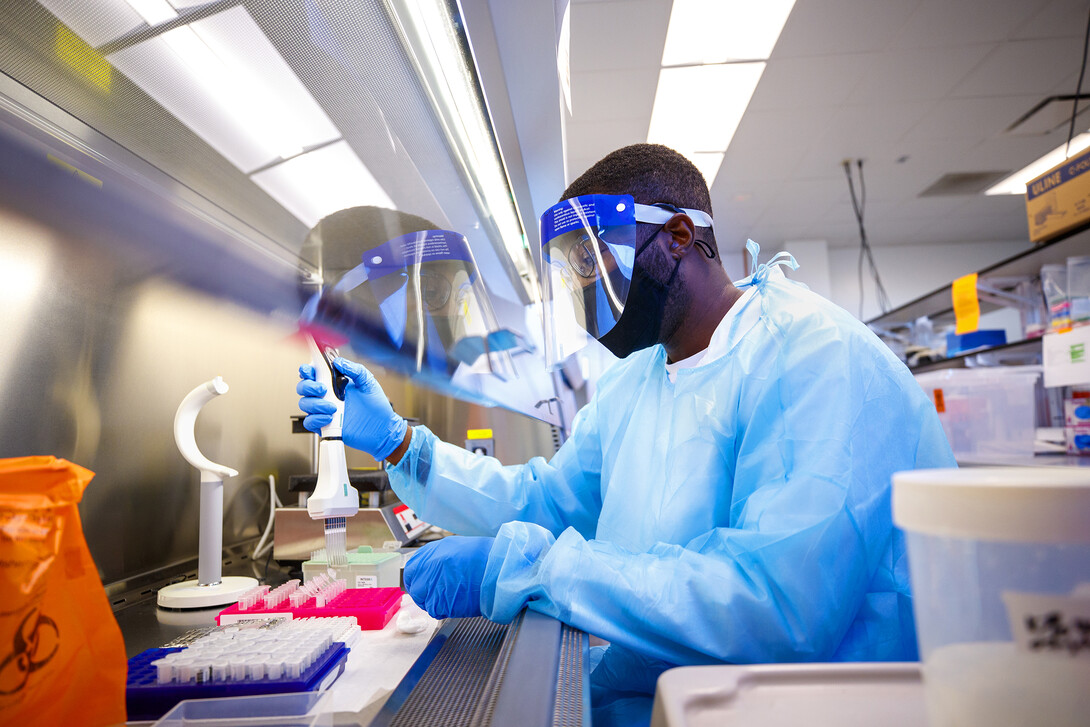
Campus began to breathe a sigh of relief when vaccines became available to faculty, staff and student workers in March. Many university employees attended and volunteered at large vaccination clinics at Pinnacle Bank Arena or the Lancaster County Events Center. Students had their own opportunity to get vaccinated on campus when the university held a series of vaccine clinics beginning on April 20.
In July, Huskers were urged to participate in the Voluntary COVID-19 Vaccine Registry. To further encourage Huskers to get vaccinated and register, six weekly drawings were held and prizes were awarded, including full tuition for five lucky Huskers. To date, nearly 80% of the campus community has been vaccinated.
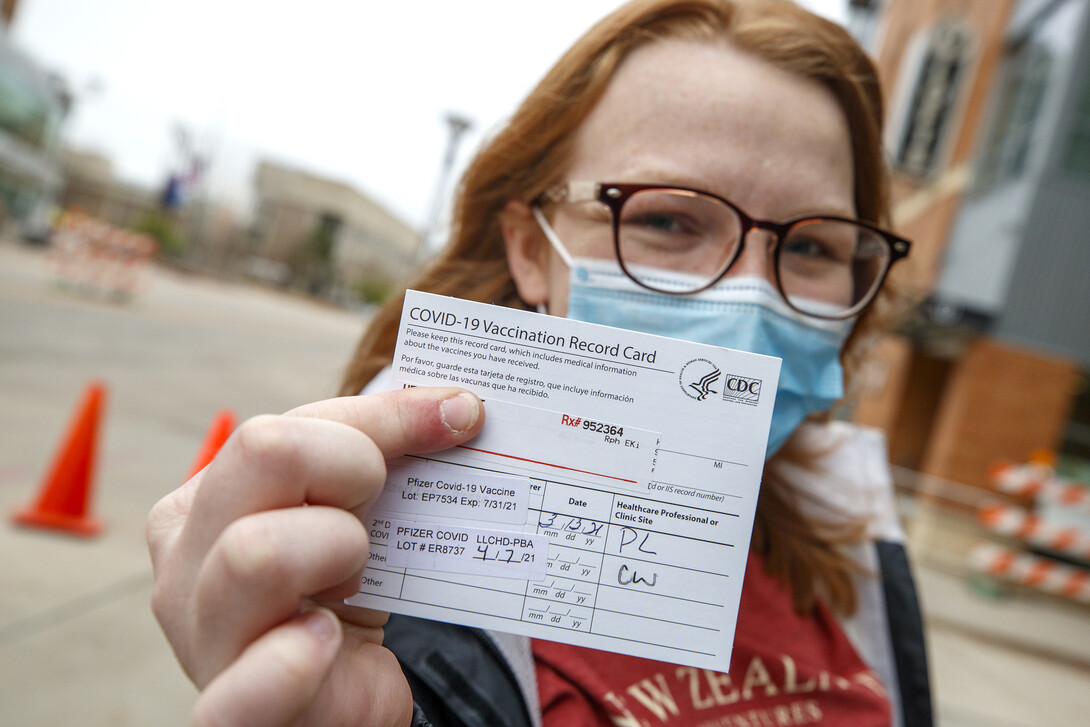
The fall semester also saw the emergence of the Delta variant, which again required changes, including the reinstatement of a mask policy, more surveillance testing and vaccine booster clinics. Huskers once again showed their ability to be flexible, stretch their strengths and help keep their campus community safe.
The year ended with a degree of uncertainty and more adjustments following the emergence of a new variant, Omicron, with scientists racing to determine what comes next in our collective odyssey through the pandemic.
Experiences and opportunities for students
Despite the inherent difficulties, the pandemic also ushered in innovative ways of learning for students, including two- and three-week mini-sessions between semesters, which allowed students to fulfill needed credit hours or explore a new topic. The sessions proved popular and were offered again during the summer and fall terms.
Huskers also uncovered new and fun ways to teach skills and concepts. Matt Waite, professor of practice in journalism and mass communications, used the March Madness tournament to teach data journalism and sports data analysis. Biomedical engineering students learned the art of prosthetic building by working with a three-legged cat and tools at Nebraska Innovation Studio. Students in forensic science processed a mock crime scene and headed into the labs to test and prepare evidence for trial. Andy Park, artistic director for the Nebraska Repertory Theatre, created and directed “ShakesFear” in October, and gave 27 fine and performing arts students the opportunity to work on a unique professional production. And architecture students continued to hone their skills by working on rural community design projects through the FACT lab.
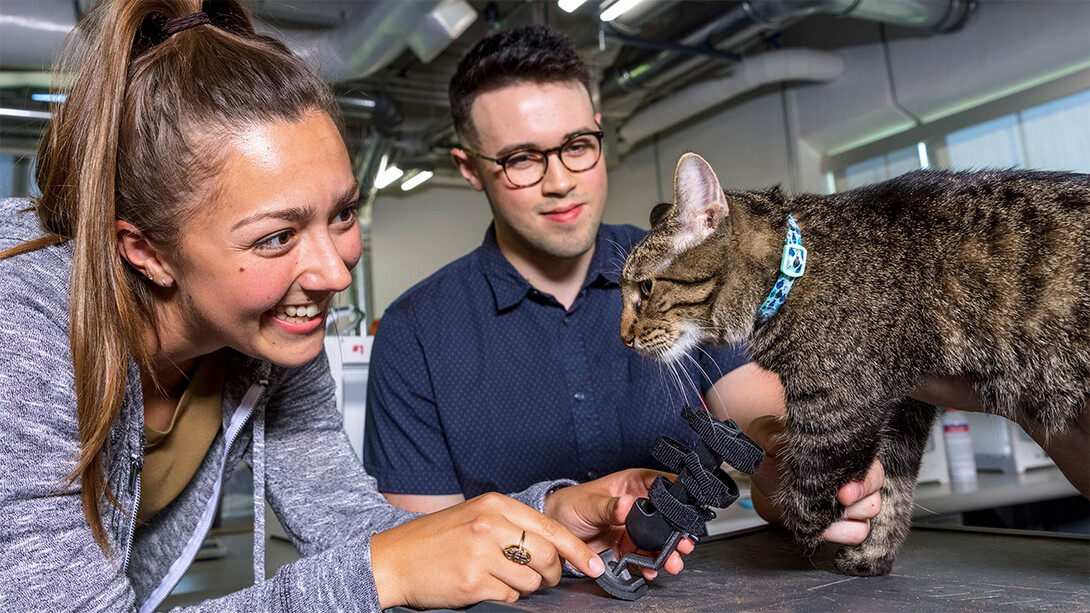
Husker engineering students earned a national award for their life-saving grain robot. Rural Fellows got back into communities, and the program benefited more Nebraskans than ever. The Children’s Justice Clinic, which is staffed by law students, earned grant funding to expand its services from Lancaster County into greater Nebraska.
New and updated labs and spaces across campus broadened student opportunities, including new chemistry labs in Hamilton Hall, the Experience Lab in the College of Journalism and Mass Communications, the Dinsdale Family Learning Commons on East Campus, and the Diversity and Inclusion Gathering Space in the College of Business.
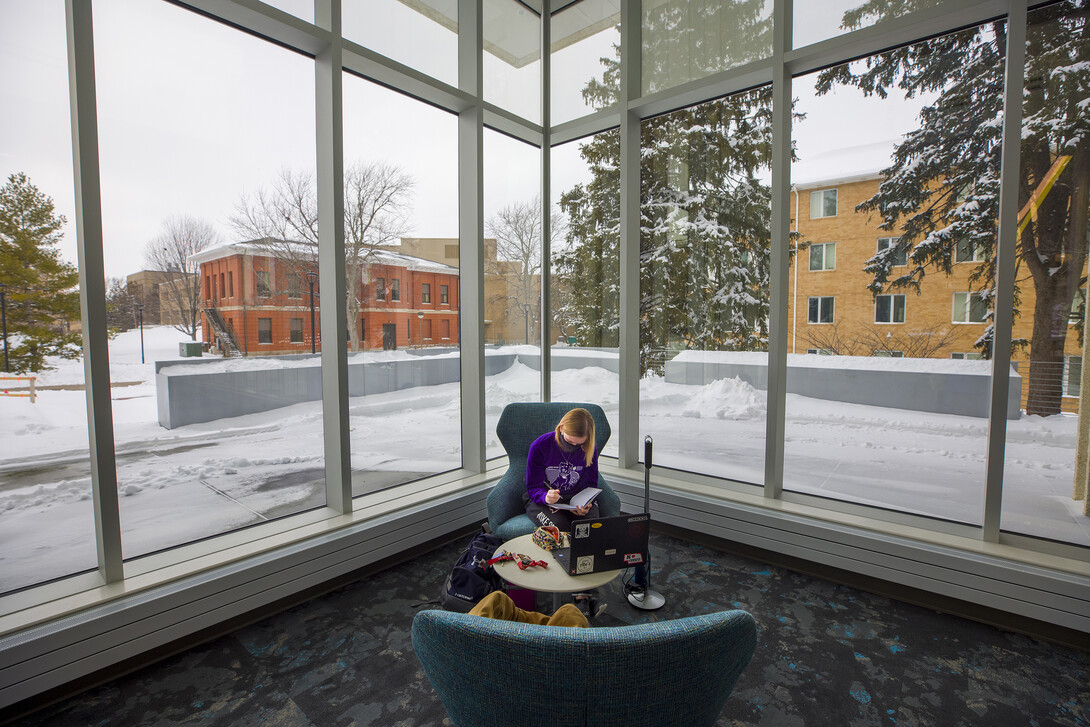
Huskers also continued to make a difference. The student veteran organization finished its sixth The Things They Carry Ruck March. International student Gabin Kundwa transformed a local food pantry with his computer programming skills. A trio of Huskers helped state cattle producers develop secure beef supply plans to safeguard against disease outbreaks. And a UCARE project shed more light on Indigenous people in the Archives and Special Collections.
The 2020-21 academic year culminated with a record-breaking graduating class of 3,594 being celebrated at Memorial Stadium in May. Moving commencement exercises outdoors allowed in-person ceremonies to proceed for the first time since 2019.
Momentum continues
Chancellor Ronnie Green delivered the State of the University address Feb. 15, lauding the work of the campus community over the previous year to keep instruction, research and outreach going through a turbulent year.
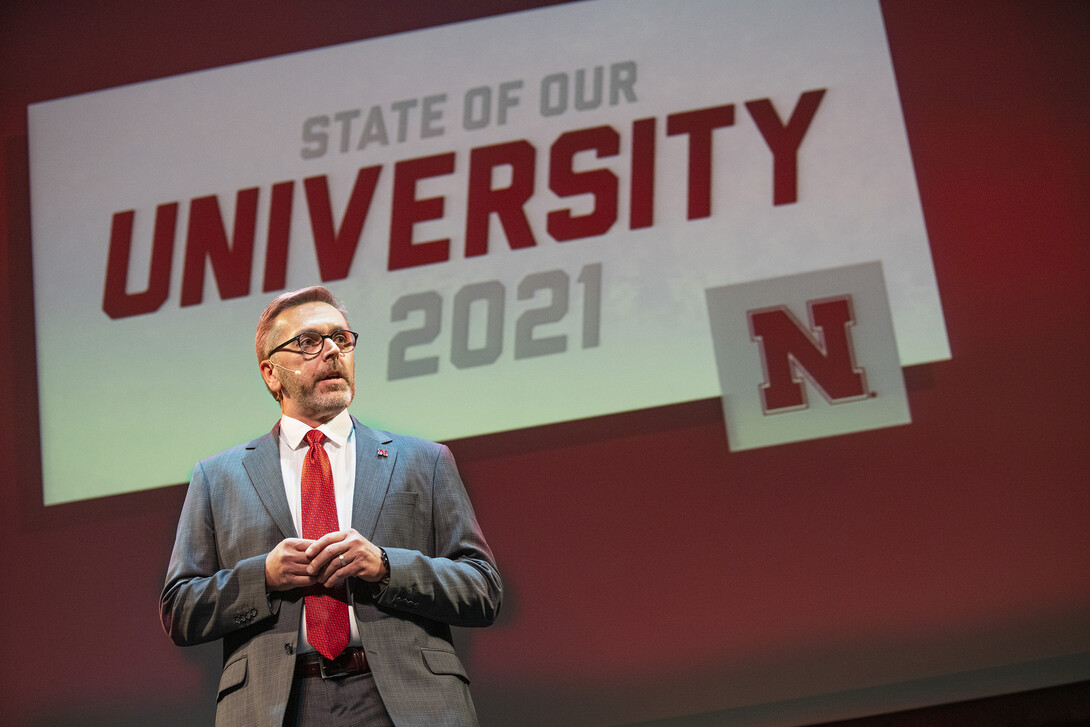
Green also looked ahead, laying out the seven Grand Challenges that will advance research and creative activity. Throughout 2021, the Office of Research helped facilitate interdisciplinary efforts to begin and sustain research in the following areas:
Sustainable Water and Food Security;
Early Childhood Education and Development;
Climate Change, Mitigation and Resilience;
Quantum Science and Engineering;
Anti-racism and Racial Equity;
Health Equity; and
Science and Technology Literacy for Society.
The university continued its long-term journey to strengthen diversity, inclusivity and equity across all areas of the institution, and in November released a commitment of action that includes a series of measures that the university will take in the coming months. The commitment is based on recommendations provided by multiple individuals and units across the university, including the co-leaders of the Journey for Anti-Racism and Racial Equity. The co-leaders worked with Green and Marco Barker, vice chancellor for diversity and inclusion, to organize the recommendations into five themes and provided the report to the university’s executive leadership team.
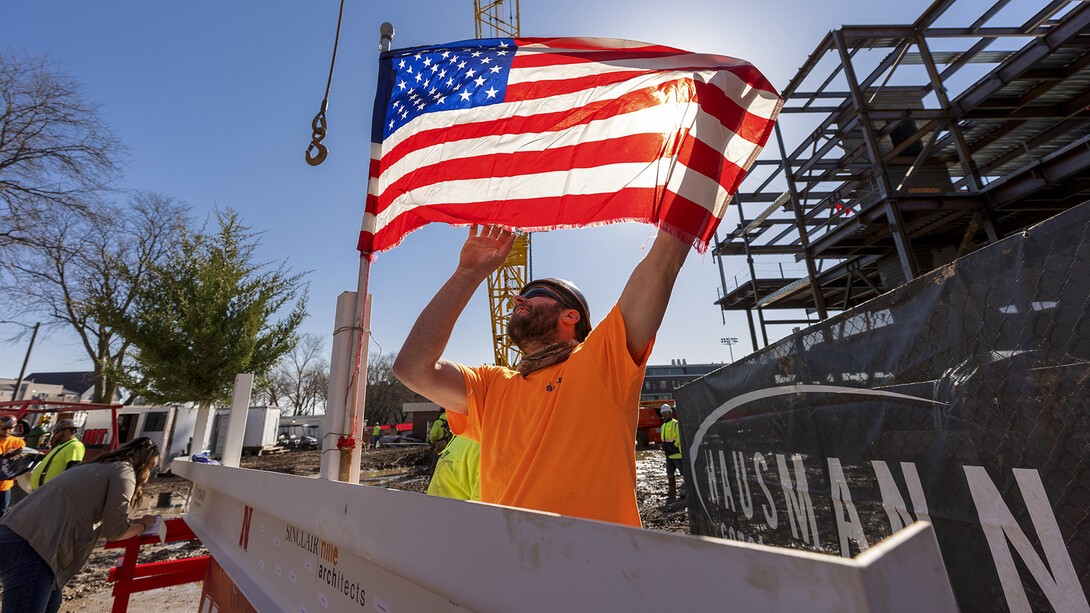
Additionally, Husker scientists and scholars marked many successes in 2021, including:
The opening of a nearly 10,000-square-foot Gnotobiotic Mouse Facility, which will propel microbiome research;
A fourth consecutive recognition in the Top 100 list of earned patents by the National Academy of Inventors and Intellectual Property;
A $20 million grant to advance quantum research and education;
A $51 million grant from the National Science Foundation to take leadership of U.S. operations in CERN’s Large Hadron Collider;
The publication of the book “The Only Wonderful Things: The Creative Partnership of Willa Cather and Edith Lewis” by Melissa Homestead, professor of English, which unveiled the central role of Cather’s life partner in her work;
International recognition of the Genoa Indian School Digital Reconciliation Project, which is digitizing thousands of records from the Genoa Indian School;
An Andrew W. Mellon Foundation grant awarded to an international team led by Kwame Dawes, professor of English, and Lorna Dawes, associate professor of University Libraries, to expand the African Poetry Digital Portal; and
An Andrew Carnegie Fellowship for Jessica Shoemaker, professor of law, who will study the challenges and opportunities that lie ahead for rural communities.







